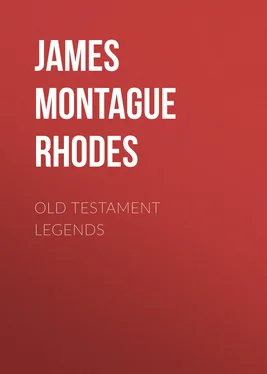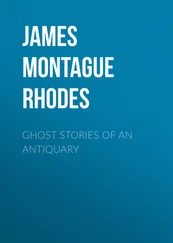Montague James - Old Testament Legends
Здесь есть возможность читать онлайн «Montague James - Old Testament Legends» — ознакомительный отрывок электронной книги совершенно бесплатно, а после прочтения отрывка купить полную версию. В некоторых случаях можно слушать аудио, скачать через торрент в формате fb2 и присутствует краткое содержание. Жанр: foreign_prose, foreign_religion, Философия, Европейская старинная литература, foreign_psychology, foreign_antique, на английском языке. Описание произведения, (предисловие) а так же отзывы посетителей доступны на портале библиотеки ЛибКат.
- Название:Old Testament Legends
- Автор:
- Жанр:
- Год:неизвестен
- ISBN:нет данных
- Рейтинг книги:3 / 5. Голосов: 1
-
Избранное:Добавить в избранное
- Отзывы:
-
Ваша оценка:
- 60
- 1
- 2
- 3
- 4
- 5
Old Testament Legends: краткое содержание, описание и аннотация
Предлагаем к чтению аннотацию, описание, краткое содержание или предисловие (зависит от того, что написал сам автор книги «Old Testament Legends»). Если вы не нашли необходимую информацию о книге — напишите в комментариях, мы постараемся отыскать её.
Old Testament Legends — читать онлайн ознакомительный отрывок
Ниже представлен текст книги, разбитый по страницам. Система сохранения места последней прочитанной страницы, позволяет с удобством читать онлайн бесплатно книгу «Old Testament Legends», без необходимости каждый раз заново искать на чём Вы остановились. Поставьте закладку, и сможете в любой момент перейти на страницу, на которой закончили чтение.
Интервал:
Закладка:
M. R. James
Old Testament Legends / Being stories out of some of the less-known apocryphal books of the Old Testament
PREFACE
If you read the title-page of this book—a thing which young persons very seldom do—you will see that it (the book) contains stories taken "out of some of the less-known apocryphal books of the Old Testament." You will very possibly not understand what that means; but if you will read this preface—another thing which young persons do even seldomer than they read a title-page—you will find the best explanation that I can give.
I have to begin by talking about the word apocryphal. The newspapers are fond of saying that a statement made by the Prime Minister (or the leader of the Opposition, according to which side in politics the newspaper takes) is apocryphal. By this, the newspaper means to say that the statement was untrue. Or, you will read that someone obtained money or goods by saying that he possessed large estates abroad; and that the estates turned out to be apocryphal. By this is meant that they did not exist. But when you read of a book being apocryphal, something rather different is meant: either that it is "spurious," i.e. that it pretends to be written by someone who did not write it; or that what is in it is fabulous and untrue, like the stories of King Arthur; or both.
Now this word apocryphal is specially used, and perhaps most often used, in connection with the Bible. Probably you have at least heard of something called "the Apocrypha," even if you have not read it, and even if you have mixed it up in your mind with another word, Apocalypse, which has nothing whatever to do with it. Well, what is "the Apocrypha"? It is to be found in many Bibles, bound up between the Old and the New Testaments. It is a set of books, looking just like the other books of the Bible, with chapters and verses. Some of it is read in church as weekday lessons in the months of October and November, as you may see by looking at the Table of Lessons in any Prayer Book. Now, are all these books of "the Apocrypha" fabulous or spurious? No. Some of them are. The Second Book of Esdras (that is, Ezra) was not written by Ezra; The Book of Baruch (the companion of the prophet Jeremiah) was not written by Baruch; The Wisdom of Solomon was not written by Solomon. These and some others are spurious. Also, the books of Tobit and of Judith are fabulous stories. On the other hand, the book Ecclesiasticus was really written by Sirach (who is mentioned in the Preface), and The First Book of Maccabees is a true and valuable history.
Then why, if apocryphal means fabulous or spurious, or both, are these books, some of which are true and genuine, lumped all together and called "Apocrypha"? I am sorry to disappoint you, but I cannot go through the whole history. It is long, it is difficult, and though it interests me, I am inclined to think it would not interest you unless I spread it over a great many pages, and filled it out with stories; and for this I have no time. Let me tell you what strikes me as being the important thing to bear in mind. Nearly all of these books have been at some time or another read in church and treated as Scripture. Nearly all of them are now treated as Scripture by the Roman Church, but not by most of the Protestant, or Reformed, Churches. They are on the borderland of the Bible. From having been so long kept together in a group by themselves, they have come to be thought of as being all of one uniform kind. But they are not so; they are of very different sorts and merits.
Let us keep the old name for them and call them "the Apocrypha." It will be convenient to do so, because I have now to speak of other apocryphal books, which have never been bound up in our Bibles, but in older times, before Bibles were printed, were (some of them at least) read in churches and thought to be sacred books. There are a great many of these: perhaps, if they were all put together, they would make up a volume as large as the Old Testament itself; but at present there is no book in which they are all printed together. Some are stories, others are visions like those in the Revelation of St. John, others are psalms and prophecies. But all of them, I think, may fairly be called either fabulous or spurious, or both.
I can give you an example from the Bible itself to show that there were such books as long ago as the times of the Apostles, and that they were read and valued. In the 9th verse of the Epistle of Jude, you read something very curious about Satan contending with Michael about the body of Moses. Ancient writers whom we may trust tell us that this is taken from a book called The Assumption of Moses (that is, the story of Moses being taken up out of this world at the end of his life).
We have pieces of this book still, but we have not got the whole story of the dispute between Satan and Michael. However, we know that it was represented as having taken place when Michael and the other angels were burying the body of Moses among the mountains in a place which was kept secret from all men, and that Satan said that though the soul of Moses might belong to God, the body belonged to him; and, moreover, that Moses was a murderer, because, long before, he had killed an Egyptian (as we read in Exodus ii. 12); whereupon Michael answered Satan in the words, "The Lord rebuke thee," and Satan fled. That is one example. Another is in the 14th verse of the same Epistle, where it is said that Enoch, the seventh from Adam, prophesied of the coming of the Lord to judge sinners. This verse is taken out of a long book of prophecies and visions called The Book of Enoch, which still exists, and we may read the very words in it.
In this present book, I am only concerned with the apocryphal stories; with the prophecies and visions and psalms I have nothing to do. Now, how and why did the stories come to be written?
It is likely enough that after reading some history in the Bible you may have wondered whether there was anything more to be known about the people of whom it told you. You would have liked to find out what happened to Adam, or Joseph, or David, besides the things which are written in the Bible. It was just so in ancient times —the times when our Lord was on earth, and even long before that. The Jews naturally thought a great deal about the people who are mentioned in the Old Testament; and just as there are a great many stories about the heroes of English history—such as that of King Alfred and the cakes—which, we are told now, are not true, so stories grew up about the great men of the Bible. Perhaps they were invented, some of them, in answer to questions which had been asked. Some of them were certainly made up in order to explain parts of the Bible which were difficult to understand. I will give an example of this. In the Book of Genesis (iv. 23, 24) you are told how the patriarch Lamech spoke to his wives and said, "I have slain a man to my wounding, and a young man to my hurt." Nothing is said in explanation of this; we are not told whom Lamech had killed. So a story was made up—no one knows when—which gives this explanation: Lamech was blind, and he used to amuse himself by shooting birds and beasts with bow and arrow. When he went out shooting, he used to take with him his young nephew Tubal; and Tubal used to spy the game for him and guide his hands that he might aim his arrow right. One day, when they were out together, Tubal saw, as he thought, a beast moving in the thicket; and he told Lamech, and made him aim at it, and Lamech's arrow smote the beast and killed it. But when Tubal ran to see what kind of beast it was, he found that it was not a wild beast at all. It was his ancestor Cain. For after Cain had killed Abel, and God had pronounced a curse upon him, he wandered about the earth, never able to remain in one place; and a great horn grew out of his head, and his body was covered with hair; so that Tubal, seeing him in the distance among the trunks of the trees and the brushwood, was deceived, and mistook him for a beast of chase.
Читать дальшеИнтервал:
Закладка:
Похожие книги на «Old Testament Legends»
Представляем Вашему вниманию похожие книги на «Old Testament Legends» списком для выбора. Мы отобрали схожую по названию и смыслу литературу в надежде предоставить читателям больше вариантов отыскать новые, интересные, ещё непрочитанные произведения.
Обсуждение, отзывы о книге «Old Testament Legends» и просто собственные мнения читателей. Оставьте ваши комментарии, напишите, что Вы думаете о произведении, его смысле или главных героях. Укажите что конкретно понравилось, а что нет, и почему Вы так считаете.











